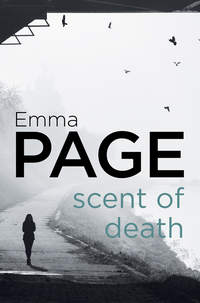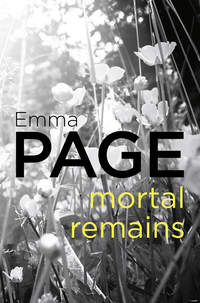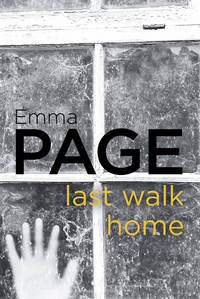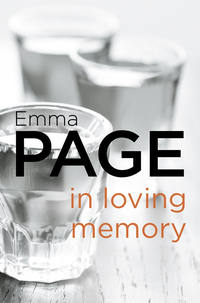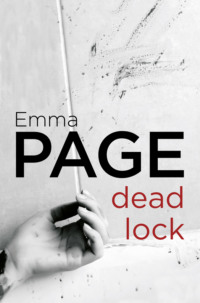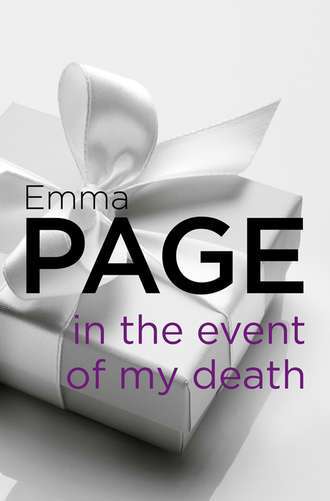
Полная версия
In the Event of My Death
All he had received outright on his father’s death had been a modest legacy of precisely the same amount as that left to his sister, Esther.
He began to eat, scarcely tasting the food. If he could just manage to keep going, struggle through into the boom that must surely come, without ruin or disgrace – or, paralysing thought, a gaol sentence. If he could scrape through without Nina ever having to know. That would be the part of any catastrophe he would relish least of all, letting down his beloved Nina, having to break the news to her that the glory days were over, the gravy train had finally smashed into the buffers. Pray God it never came to that, but if, God forbid, it ever did, then thank God for a wife with backbone and loyalty. Whatever happened, Nina would never whine or indulge in self pity. However low the depths to which he sank, there was always the cast iron certainty that she would stand by him to the end.
A business acquaintance came up, calling out a friendly greeting. Matthew at once switched on his cheerful smile, his look of lively interest, his genial, on-top-of-the-world manner.
CHAPTER 3
It was easy to imagine Nina Dalton as a fashion model, with her tall, willowy figure, fine-boned face, honey-coloured skin and large, expressive eyes of a clear golden amber. Her wealth of pale blonde hair, full of natural waves and curls, was taken up on top of her head, displaying the graceful line of her neck.
She had worked for charity in one capacity or another, paid or voluntary, since the day she had left secretarial college. She wasn’t a native of Brentworth but came from a small town some distance away. It was when she was on the payroll of a national charitable organization that she had first met Matthew Dalton; she had called on him in the course of a fundraising campaign directed largely at businessmen.
She had walked in through the door of his office at a crucial moment in Matthew’s life. He had just managed to break away from a long entanglement with an older woman, a divorcée, good-looking and sophisticated, with more than one string to her bow. Matthew had finally realized the relationship was leading nowhere, it was time his bachelor days were done; what he needed now was a conventional marriage, settled and supportive. He married Nina three months after she walked into his office.
She had spent the latter part of Friday morning dealing swiftly and competently with the affairs of a small local charity set up a hundred and fifty years ago for the benefit of retired governesses by a wealthy widow who had herself been a governess before her marriage. The endowment, so munificent seeming in its day, was now greatly eroded and governesses were a dying breed. These days, the charity’s business required only an hour or two of Nina’s time on alternate Friday mornings. For this purpose she was allowed a corner in the Brentworth office of a national charity for the welfare of the elderly: Friends of the Third Age. Any mail that arrived for her was always put aside unopened against her next visit.
On Friday afternoon, Nina gave her time to the Cannonbridge hospice appeal, taking her seat at a desk in one of the rooms behind a thrift shop in a side street; the shop had offered free use of the room for the duration of the appeal.
The bulk of essential money had now been raised and building work was due to start on the hospice site at the end of February. A well-known television entertainer, a dedicated supporter of the hospice movement, had promised to lay the foundation stone a month later. But there could be no slackening in the fundraising. Money would be needed for the upkeep and running of the hospice, for the many extras, improvements and refinements that would be looked for along the way.
Nina spent the first part of her stint sketching out yet another publicity campaign; publicity was one of her fortes. She was still busy with minor matters at the end of the afternoon when the other voluntary workers had gone. The phone rang on her desk: James Milroy, acquainting her with the outcome of the buffet lunch. As he had predicted, she was delighted with the figures.
‘Wonderful weather we’re having just now,’ James went on to remark. ‘I imagine you’ll be thinking about opening up the cottage any day now.’
‘I imagine I will,’ she agreed. The cottage stood in beautiful countryside, the best part of two miles from the nearest village, in a spot roughly equidistant from Brentworth and Cannonbridge. It had belonged to the Dalton family for a great many years and currently formed part of the trust property. James and Esther had spent weekends there in the early days of their marriage and Esther had made regular use of it later, when the boys were small; she still retained a key. The cottage was now used chiefly by Matthew and Nina. Nina had devoted considerable time and effort to having it extended and modernized, the furnishings and decorations renewed, the garden set to rights. Esther made little use of her key these days. She would sometimes drive over there when she felt particularly low, wandering round the garden in a fruitless nostalgic attempt to recapture the happiness of the first years of her marriage when her days were full and satisfying, without the need to go searching for activities to fill them.
‘I might take a run over there myself, one day next week, if the weather holds,’ James continued, his voice light and easy.
‘Might you, indeed?’ Nina returned, equally lightly. In theory, James and Esther were as free to use the cottage as Matthew and Nina, but in practice Matthew and Nina would seem to have taken over the property completely.
‘Maybe I’ll see you there,’ James added.
‘I rather doubt it.’ Her tone was friendly, touched with amusement, but with a hint of underlying granite; she kept from her voice any lingering echo of old sentiment. She had known James before she met Matthew, she had encountered him in the same way, through her fundraising activities. If James had not been a married man with two young sons, a man still moving up the ladder, careful not to blot his copybook in any way, Nina would in all probability at this moment have been Mrs James Milroy instead of Mrs Matthew Dalton.
Nina glanced round at the sound of the door opening. A woman came into the room, a voluntary worker with a problem to be solved. Nina brought the conversation with James to a rapid conclusion.
Shortly after the woman left, Nina had another caller: a publican with a handsome cheque from various fundraising activities organized among his customers. Nina thanked him warmly and wrote him out an official receipt. His eyes rested on the elegant gold pen she used, an engraved inscription discernible along the barrel; he made an admiring comment. Nina smiled and held out the pen for him to read the inscription. The pen had been presented to her a few years ago after she had worked night and day to raise money for a local day centre, threatened with closure, for handicapped and disabled youngsters. The pen hadn’t been bought out of the money raised for the centre but by a private whip-round the youngsters’ parents had made among themselves, in appreciation of Nina’s prodigious – and wholly successful – efforts.
After the publican had departed, Nina rang Matthew, as she always did, to ask what his plans were for the evening, what he wanted her to do about a meal. He told her he’d be staying on at his office again, he’d be home around eight.
‘That’ll be fine,’ she assured him. She didn’t stay chatting, she knew how busy he was these days. She could now work on at her desk a little longer, there were still matters to attend to. She made a number of phone calls, checking and finalizing arrangements for a sponsored half marathon to be run shortly by older pupils from local schools. Then she sat considering the merits of making another round of all the business premises in town, deciding at length in favour of it. It could be carried out this time by a team of pretty girls; that would surely bring in a worthwhile sum. She could get Verity Thorburn to round up a decorative bunch from among her fellow students.
Verity was a connection of Nina’s by marriage, a great niece of Nina’s father-in-law, Bernard Dalton. Over the years, Bernard had gathered more than one stray chick under his wing. As an orphan and a relative, Verity had had a double claim to his protection. She was at present taking a course at the Brentworth College of Further Education. She was always ready to assist Nina, always willing to do what she could for the hospice appeal.
Nina looked at her watch. Too early to ring Verity now, she would still be at the college; she had a late class on Fridays. She would ring her at her flat later this evening.
The college was a large building, put up after the Second World War. Verity was taking a two-year course, begun shortly after her seventeenth birthday, eighteen months ago. She had chosen a somewhat unusual combination of subjects: secretarial skills, cordon bleu cookery and art. She enjoyed them all and was doing well.
At a few minutes after seven she came out of the college, bound for the little basement flat where she lived alone. She had moved there six months ago from the larger flat she had shared with two other girls, both students at the college.
She was slightly built, not very tall, with an elfin face, big brown eyes, a vulnerable look. Her long dark hair hung straight and heavy. Her temperament was highly mercurial; she harboured deep feelings of insecurity, due in no small measure to the abrupt and brutal fashion in which she had been orphaned at the age of nine.
Her parents and maternal grandparents had all been medical missionaries in Africa; the grandmother was a sister of Bernard Dalton. When the grandparents were retiring, they decided to spend a month at the mission station run by Verity’s parents before returning to England for good.
In the middle of their visit, Verity attended a birthday party given for the daughter of friends living some distance away; she was to stay overnight. In the early hours of the morning the mission station was attacked by a roving band of marauders who had slipped over the border from a neighbouring territory under cover of darkness. The buildings were looted and burned, every man, woman and child – black or white – savagely butchered.
A week later, Verity was sent home to England, into the care of her great uncle, Bernard Dalton, and his second wife, Grace.
Now, on this fine February evening, as she set off for her flat, she caught sight of someone standing by the entrance gates, looking across at her. Her heart gave a wild leap of joy. It was Ned Hooper; it was more than a week since she’d set eyes on him.
Then her heart sank. He didn’t come forward to meet her but remained unsmiling by the gates, waiting for her to reach him. It didn’t augur well.
Ned was eighteen years older than Verity. Tall and strongly built, good-looking in a very English way, with fair hair and blue eyes, an open expression. He had studied art at the college and now did occasional supply teaching in the art department, to eke out the exceedingly slender living he contrived to make as an artist.
‘Are you coming along to the flat?’ Verity wanted to know, the moment she had greeted him. Her manner was intense and eager. Her main reason for moving to a flat of her own was so that the pair of them could be together without the knowledge of her flatmates – or her relatives and guardians.
Ned shook his head with resolution. He knew once they were indoors she’d try every trick in the book to get round him. Or else she’d set about creating the kind of scene he couldn’t stomach. He gestured in the direction of a small public garden near by. ‘We can talk over there.’
They walked side by side, in silence, not touching, till they reached the garden. At this time of evening there were few strollers along the gravel paths. They found a seat beside the beds of winter heather; in silence they sat down, a little apart. She sat stiffly upright, gazing straight ahead, waiting for him to begin.
‘We’ve had some good times,’ he said at last. ‘I don’t forget them. But they’re over now, it’s definitely finished.’ Her head came sharply round, she darted a beseeching look at him from her great dark eyes. It was those eyes he had first noticed, fixed on him in class, with that intense, searching gaze, the gaze he had once found so intriguing.
‘It doesn’t have to be finished,’ she declared vehemently.
He didn’t waver. ‘I’m afraid it does. It really is over. You’ll meet someone else, someone your own age. You’ll forget about me in no time at all.’
She clenched her fists. ‘I don’t want anyone else. I want you.’
‘I’m afraid you can’t have me,’ he threw back at her with asperity. ‘I’m bowing out for good.’ With an effort he softened his tone again. ‘You must accept it’s over. It does no good trying to argue about it.’
‘It’s Mrs Bradshaw,’ she said with sudden ferocity. ‘You’re moving in with her, aren’t you?’
‘Yes, I am moving in with her,’ he replied brusquely. ‘I’m a free agent.’
Her voice rose. ‘You don’t love her! You can’t! She’s old and fat.’
‘She’s neither old nor fat,’ he retorted. Mrs Freda Bradshaw was in fact forty-two years old. She might carry a little more flesh than was currently fashionable, but it was certainly no hardship to look at her. She had been a good-looking girl and was still an attractive woman. She was the widow of a man more than thirty years her senior, the owner of a chain of cut-price clothing stores up north. She had started out at sixteen as a sales assistant in one of his stores and had early taken his eye. When his wife died, Freda lost no time in stepping into her shoes.
She had played fair throughout the years that followed. She had been genuinely fond of her husband, had looked after him devotedly in his old age, nursed him in his last illness. She had inherited everything. There had been no children from his first marriage, no relatives to argue the toss.
Freda had then set wholeheartedly about enjoying the rewards of her devotion. She sold the business and salted away the proceeds, then she set off for fresh pastures. Some wind blew her before long to Brentworth. She came across Ned Hooper at an art exhibition.
‘I can’t bear to think of you with that woman.’ Verity laid an urgent hand on his arm. ‘If it’s just her money, you know I’ve got money coming to me one day. Quite a lot of money. You can have it all.’
He shook off her hand. ‘I don’t want your money,’ he said roughly. ‘What do you take me for?’
She wasn’t done yet. ‘I’m sure I could get hold of some of the money now. You can have every penny.’
He made a contemptuous gesture of dismissal and got to his feet. She remained seated, looking pleadingly up at him. ‘You’d better get it into your head,’ he said with profound irritation. ‘This really is goodbye.’ He went rapidly off along the path.
She sat biting her lip, staring after him as he plunged out of the garden, disappearing from view along the busy evening pavement.
Shortly before seven-thirty, Esther came out of the Brentworth hospice where she had been putting in a little extra visiting, as she not infrequently did on evenings when James wouldn’t be home before bedtime. She didn’t use her car if the weather was fine, as it was tonight; the walk both ways helped to fill the long stretch of time.
She set off without haste in the direction of Oakfield Gardens and her solitary supper, choosing her usual route that took her through the town centre with its cheerful bustle and brightly-lit shop windows, postponing as long as possible the moment when she must let herself in to the silent house.
As she approached the block where Matthew had his offices, she glanced up to see if any of his lights showed, as they had so often done of late. Yes, light was showing. She slowed her pace to a halt and stood pondering, then she made up her mind and went quickly in through the swing doors, into the deserted entrance hall.
She could hear someone rattling about, along a corridor; the caretaker, no doubt. She wasn’t anxious to encounter him; he was a dour character with a chronically gloomy view of the world. She slipped quietly up the stairs to the floor where Matthew had his offices.
CHAPTER 4
The weather continued mild. On Sunday afternoon, Verity Thorburn sat with Barry Fielding, another of her great uncle’s protegés, in the tea room attached to the Brentworth Art Gallery. They had just made the rounds of an exhibition of late-Victorian watercolours. Barry had cycled over from his boarding school, a mile or two outside Brentworth, to join her for the afternoon; they often went to concerts and exhibitions together.
Barry Fielding was the last of Bernard Dalton’s stray chicks; he was a year younger than Verity. Bernard had died twelve months after making himself responsible for Barry’s welfare. Barry was a tall, spindly lad, serious and studious. He was in the sixth form, working hard to gain a place at university, where he hoped to read medicine.
He and Verity were very close, they had been closer than a good many siblings since they were first introduced to each other seven years ago. They were now both wards of the same brace of guardians: Bernard Dalton’s widow, Grace – whom Verity always addressed as Aunt Grace – and Grace’s solicitor, son of the man, dead now for three years, who had been Bernard’s solicitor. Barry had begun by addressing his benefactors as Mr and Mrs Dalton but had gradually fallen into using the same terms as Verity; no one had ever offered any objection.
Barry no longer had any relatives of his own. His mother had died when he was six years old. His father had been one of Bernard Dalton’s employees, an ambitious and hard-working young man from a Cannonbridge council estate; he had looked after Barry with the help of neighbours. When Bernard Dalton retired, he sold the business and Fielding was one of a number of men who decided not to continue with the new employer but to make use of the generous severance money on offer, to set up in business on their own.
Things went well enough with Fielding for a year or two, until boom gave way to recession. He struggled along with mounting difficulty. He was a man who bottled things up, kept his worries to himself; he grew increasingly depressed.
One Saturday morning in the summer holidays when Barry was away at a school camp, Fielding drove down to the little resort on the north coast of Cornwall where he had spent his honeymoon. He booked in at a small bed and breakfast establishment. On Sunday morning he rose early and went out for a swim. He never came back.
He had left his clothes and towel neatly folded on the beach; there was no note. His body was washed up a few days later. There was only a small insurance policy on his life, written in trust for his son’s benefit, taken out at the time Fielding set up in business on his own. The inquest returned a verdict of death from drowning, with insufficient evidence to show the state of mind of the deceased.
At the time Bernard Dalton took over responsibility for Barry, Verity Thorburn had already been in his care for two years; he had sent her to the boarding school his daughter Esther had attended. Verity had been spending her school holidays with Esther and James, whose schoolboy sons were also home from boarding school.
Verity was far from happy at the Milroys’, though she did her best not to show it. Esther strove to be kind but the age gap between Verity and the boys was too great to be easily bridged. And Verity had remained for a considerable time in a withdrawn state, able to bear little in the way of teasing or boisterous games, liable to rush off to her room to give way to fits of silent weeping when a chance word or snatch of music touched some chord of memory. The only person to perceive the depth of her unhappiness was Nina Dalton. She couldn’t take Verity in the holidays herself as she was often out all day, endlessly busy.
But when Barry arrived on the scene, Nina put forward the idea that both youngsters might spend their holidays at Elmhurst, the Dalton family home, near Cannonbridge. Bernard and Grace readily agreed and the plan proved very successful. A strong friendship developed between the two orphans, working wonders for them both. They had the freedom of the grounds. The gardener, Gosling, an amiable man, made friends with them and his wife was endlessly kind.
Now, as they sat in the tea room, Barry talked of how his training was coming along for the sponsored half marathon. He was an ardent fundraiser for the new hospice, heading the sixth form committee at his school, masterminding the boys’ efforts.
Verity asked if he had done anything yet about Aunt Grace’s birthday present. It would be Grace Dalton’s seventieth birthday on Saturday, 7th March. Grace was set on holding a family gathering at Elmhurst that weekend; she had always greatly enjoyed such occasions. She had been in poor health for the past two years but her doctor believed the little celebration would do her good, provided care and moderation were exercised.
‘I’ve found a book I think she’ll like,’ Barry said. He’d come across it in an antiquarian bookseller’s: a photographic history of Cannonbridge, from the turn of the century to the late ‘thirties; it was handsomely bound, in excellent condition. ‘There are several photographs of the grammar school,’ he added. ‘Her father’s in one of them.’ Grace was Cannonbridge born and bred; her father had been senior history master at the grammar school.
‘She’ll love that,’ Verity responded with conviction. She was giving a watercolour of Elmhurst she had painted herself. ‘I’ll give you a lift over there that weekend,’ she added as they stood up from the tea table. She had her own little car, bought six months ago from money she’d come into on her eighteenth birthday, a legacy of no great size, from her great uncle.
They walked across to where Barry had left his bicycle; he had to get back to school. ‘The birthday weekend could easily be cancelled,’ Barry pointed out. ‘If Aunt Grace isn’t well enough.’
‘She’ll be well enough,’ Verity retorted. ‘She’ll live to be a hundred, heart or no heart, she’s as tough as old boots.’ Her face took on a brooding look. ‘There she is, sitting on all that money,’ she suddenly burst out. ‘Why should an old woman, no blood relation of mine, someone who just happened to marry my great uncle, have control over what I do?’
Barry mounted his bicycle. ‘She’s only doing her duty, doing what Uncle Bernard wanted.’ He gave her a straight look. ‘She’s been very good to both of us,’ he reminded her. ‘She’s always treated us fairly and kindly. And she doesn’t take decisions about us on her own, everything has to be agreed between her and Mr Purvis.’
Ah yes, Mr Purvis, Verity thought. Her expression lightened as she waved Barry off. She’d been forgetting Mr Purvis, the Dalton solicitor. She set off briskly for her little flat, in a surge of renewed optimism.
CHAPTER 5
Elmhurst, home of the Dalton family for over a century, stood in extensive grounds, sixty acres and more, on the outskirts of a village close to Cannonbridge. Over the last thirty years, developers had turned hungry eyes on the Elmhurst land, rapidly becoming a prime site as the town advanced steadily nearer. More than one entrepreneur, with plans for a high-class development in mind, had approached the local authority to discover its views. Planning permission would undoubtedly be granted and would be welcomed locally.
Bernard Dalton had received a number of offers. The figures mentioned rose as time went by, occasionally making spectacular leaps. But Bernard had never for one moment contemplated selling, and his widow was of precisely the same mind.
Grace Dalton had been a spinster of forty-six when she married Bernard. She had worked for the firm since leaving secretarial college; she had been Bernard’s personal assistant for several years. She had never had a boyfriend but kept house for her widowed schoolmaster father until his death, two years before her marriage.



